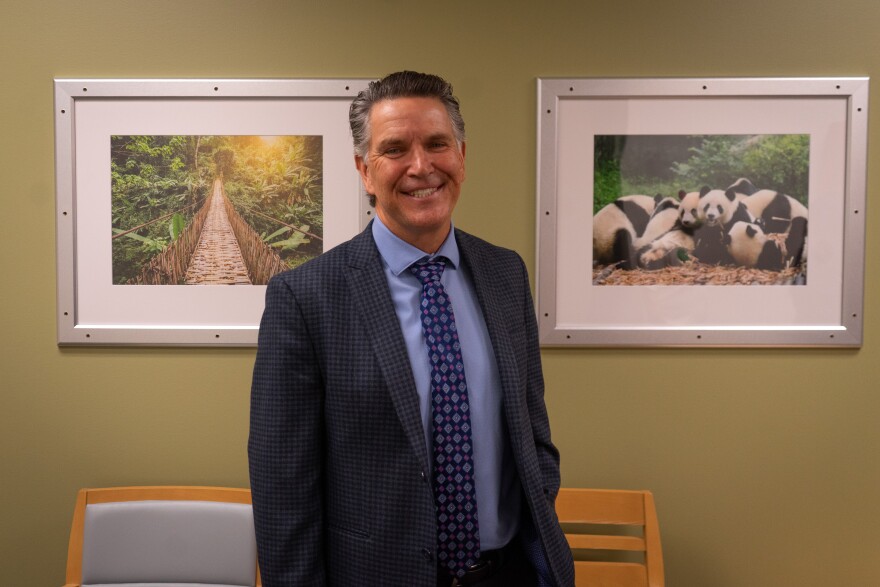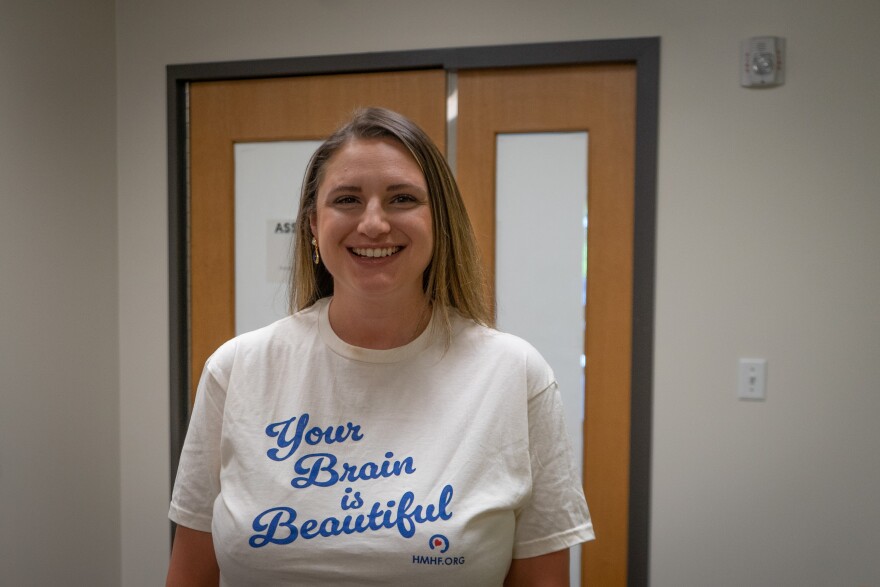Pueden encontrar la versión en español aquí.
—
In 2023, suicide was the second leading cause of death for Utahns age 10 to 17, according to the Utah Department of Health and Human Services. To help with those mental health struggles, the Huntsman Mental Health Institute is looking to provide 24/7 support to children and teens ages 5 to 17.
A new youth crisis center will open July 28 at their facility in Salt Lake City to offer immediate support for non-medical mental health emergencies. The center will be open 24 hours a day, seven days a week, for walk-in care with no appointment needed.
“The youth and children in our community have been significantly struggling,” Dave Eldredge, executive director of the Huntsman Mental Health Institute, said at an open house.
When it comes to young patients, treatment plans need to be unique, Eldredge said.

“Developmentally, a 5-year-old is going to be in a different place than a 16-year-old, and so the way that you intervene is going to be different,” he said. “The specificity for pediatrics is a unique service in that you don't just apply adult practices to kiddos.”
The center will have physicians, social workers, nurses, peer support specialists and psychiatric technicians on site to work closely with children and their families.
Nationwide, youth mental-health related emergency room visits nearly doubled from 2011 to 2020, according to a 2023 report from the Journal of the American Medical Association
Natalie McClintock, licensed clinical social worker and behavioral health science manager at the Huntsman Mental Health Institute, said the new center takes a psychiatric-focused approach to crises, unlike traditional emergency rooms.
“[An] emergency room is really focused on just getting [patients] out and not really focused on the best level of care,” McClintock said. “So, this allows us to determine the best level of care across the continuum and make access to that.”

Patients can stay up to 23 hours, which makes it a bridge between inpatient and outpatient care.
“We're really working on safety, further observation, and then connecting to community resources, whether that's medication management, whether that's therapy, and things of that nature,” she said.
As the center prepares to open, Eldredge said he hopes their services can change the stigma around mental health care and increase accessibility.
“So ultimately we're wanting to, you know, be a part of helping people with hope and healing and saving lives.”
If you or someone you know is in crisis or thinking about self-harm or suicide, call or text 988 to reach the Suicide and Crisis Lifeline.
Editor’s note: KUER is a licensee of the University of Utah but operates as an editorially independent news organization.





